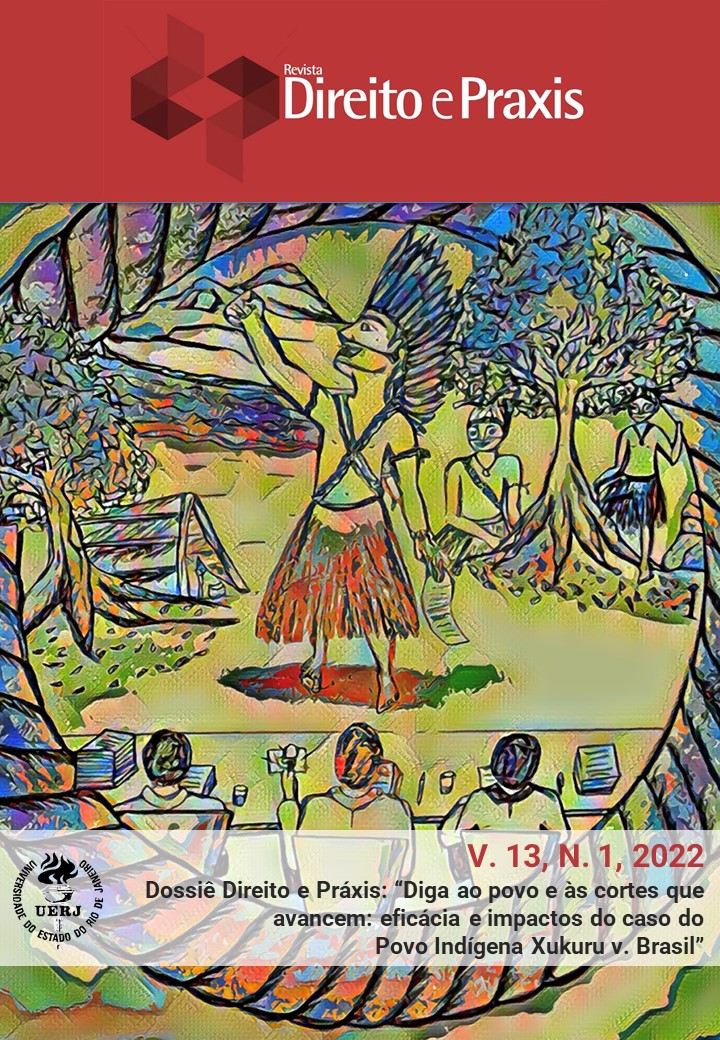Em que se pode reconhecer a alteridade? Política, virada narrativa e usos pragmáticos / How do we recognize otherness? Politics, narrative turn and pragmatic uses
Palavras-chave:
Alteridade, Política, Pragmatismo, Pós-estruturalismo, Virada Narrativa / Linguistic Turn, Otherness, Politics, Post-structuralism, Pragmatism.Resumo
DOI: 10.1590/2179-8966/2021/55151
Resumo
Este artigo questiona a redução da ação política à sua dimensão narrativa, e a da alteridade a uma identidade binária, fixa e projetiva. Para tanto, mobiliza dois planos analíticos que progressivamente se interceptam: o primeiro apreende criticamente as relações entre direito e literatura, que submetem a realidade a um regime narrativo; o segundo revisa alguns pontos da fortuna crítica dos gender, postcolonial e subaltern studies, que arriscam perder sua eficácia política em função de sua captura por narrativas dependentes de autenticações identitárias. Os planos se interceptam na problematização constante da alteridade reduzida a um ideal moral e ao propor uma análise a partir de uma pragmática de inspiração pós-estrutural e pós-identitária, capaz de enriquecer problematicamente as abordagens mais estruturais. Como resultados, define-se um corpus de questões transversais para uma agenda de pesquisa em movimentos sociais identitários que se beneficie da interação criativa entre essas matrizes teóricas.
Palavras-chave: Alteridade; Política; Pragmatismo; Pós-estruturalismo; Virada Narrativa.
Abstract
This essay inquires the reduction of political agency to its narrative dimension, and also the reduction of otherness to a binary, fixed and projective identity. Therefore, the essay draws two analytical plans which progressively intercept each other: the first one, critically apprehends the relationship between law and literature, since it subsumes reality to a narrative regime; the second one, reviews some topics on the critic collection of gender, postcolonial and subaltern studies, that risk to lose their political efficacy due to its capture by identitarian narratives. Those two analytical planes intercept each other through the constant problematization of the reductionist conceptions of otherness, such as ideal and moral principles. They also converge in the proposal of a pragmatic enlivened by post-structuralist and post-identity trends, aiming to problematically enrich the more structural approaches. As results, the essay defines a corpus of transversal problems composing a research agenda on identitarian social movements which could benefit from the creative interaction between all those theoretical matrices.
Keywords: Linguistic Turn; Otherness; Politics; Post-structuralism; Pragmatism.
Downloads
Downloads
Publicado
Como Citar
Edição
Seção
Licença
Os textos são de exclusiva responsabilidade de seus autores.
É permitida a reprodução total ou parcial dos artigos da Revista Direito e Práxis, desde que citada a fonte.
Este trabalho está licenciado sob uma Licença Creative Commons 4.0, Atribuição-Sem Derivações.
Esta licença permite copiar e redistribuir o material em qualquer suporte ou format para qualquer fim, mesmo que comercial, desde de que citada a autoria original.
This work is licensed under a Creative Commons Attribution 4.0 International License.




